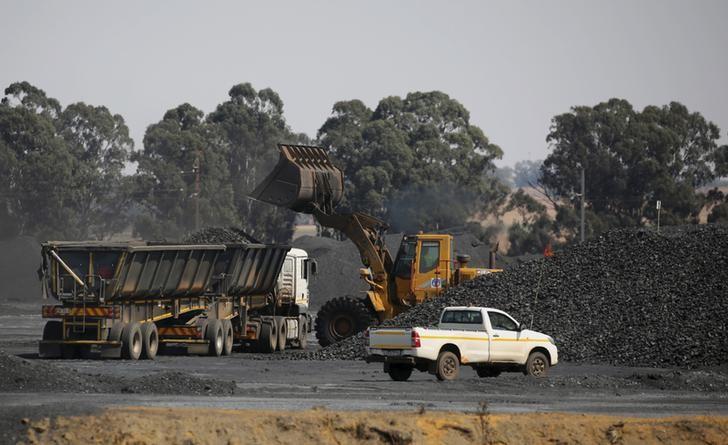Thousands of coal truck drivers descended on South Africa’s capital Pretoria on Wednesday to protest against the country’s renewable energy program, after President Jacob Zuma expressed support for the sector last month.
In a speech to parliament on Feb. 10, Zuma said state utility Eskom would sign new renewable energy contracts, angering coal transport workers who say such contracts will lead to 30,000 job losses in the coal industry.
Coal is used to generate the lion’s share of South Africa’s power supply and job cuts are a particularly thorny issue in a country where the unemployment rate is almost 27 percent.
“We are against the signing of the independent power producer (IPP) program,” said Coal Transportation Forum spokeswoman Mary Phadi. “All the mines that are producing coal are going to be affected and the power stations will be forced to shut down.”
Phadi said about 2,000 protesters marched to Zuma’s offices in Pretoria and handed over a list of demands. Most wore T-shirts with the logo #IPPsMustFall, in reference to Independent Power Producers who produce renewables.
They had arrived in the capital in trucks, jamming highways and blocking many motorists on their morning commute or school run.
“They will respond to us within seven days,” Phadi said.
The president’s office was not available to comment.
As the protest took place, however, Eskom’s acting Chief Executive Matshela Koko said the utility would not renew the contracts of coal transporters supplying coal to Eskom.
“Effectively we’re seeing Eskom using less and less coal because of surplus capacity, negative energy growth and ongoing boarding of the renewable IPPs,” Koko said on Talk Radio 702.
Eskom said a coal agreement it has with the truck drivers will not be renewed when it expires in May 2018. The utility said the trucks only supply a portion of its coal, most of which is transported to its power plants from mines through conveyer belts and by rail.
Producers of solar and wind power have put pressure on Eskom to sign more new renewable energy contracts.
Industry experts have said that Eskom slowed the pace of agreeing new renewable energy contracts after power supply in South Africa stabilized last year, following shortages in 2015 that led to power cuts across the country.
Source: Reuters



